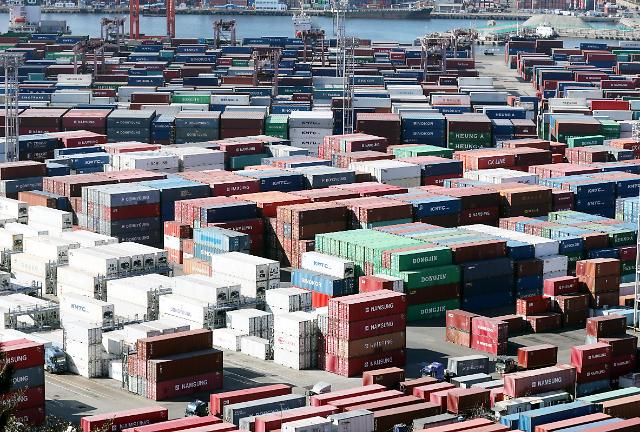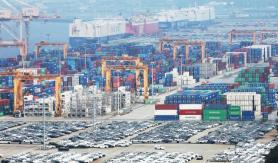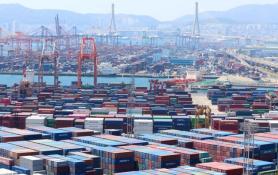
[Yonhap]
SEOUL -- South Korea's current account returned to a surplus in December on the back of growing dividend income after recording a deficit in November, according to data released by the Bank of Korea (BOK) on February 8.
The country posted a $2.68 billion surplus in the current account in December, marking a reversal from a deficit of $220 million a month earlier. The sum, however, plunged 57.9 percent from $6.37 billion a year earlier. The current account is a broad measure of a nation’s global trade in goods and services as well as net earnings on cross-border investment.
The BOK said the current account went back into the black as dividend income surged 60 percent to $4.49 billion year-on-year. It added that Korean companies received more dividend income from their overseas subsidiaries.
For all of 2022, the current account surplus tumbled 65 percent to $29.83 billion from the previous year's $85.23 billion because the country suffered a trade deficit amid the global economic downturn.
South Korea recorded a deficit of $480 million in the trade of goods in December, sustaining the shortfall for the third consecutive month. The amount was in stark contrast to a $4.43 billion surplus a year earlier.
Exports fell 10.4 percent year-on-year to $55.67 billion in December, continuing its downward march for four months in a row. The decline was led by shipments of semiconductors which nosedived 27.8 percent. Exports of steel products also shrank 20.5 percent, followed by chemical products (17.2 percent).
South Korea's exports to China deceased sharply by 27.1 percent. Its shipments to ASEAN countries also dropped by 23.7 percent with exports to Japan declining by 10.3 percent.
Korea's imports also fell 2.7 percent year-on-year to $56.15 billion in December. It was the first time in two years that the country saw a drop in its imports.
However, imports of natural resources and raw materials edged up 0.1 percent. Imports of gas, oil and coal soared by 52.2 percent, 16.9 percent and 12.5 percent, respectively, due to high global energy prices.
South Korea incurred a $1.39 billion deficit in the trade of services in December, compared with a $760 million shortfall a year before. The country's tourism deficit widened to $1.14 billion from $740 million a year ago as more Koreans traveled to other countries amid eased COVID-19 restrictions.
Copyright ⓒ Aju Press All rights reserved.



